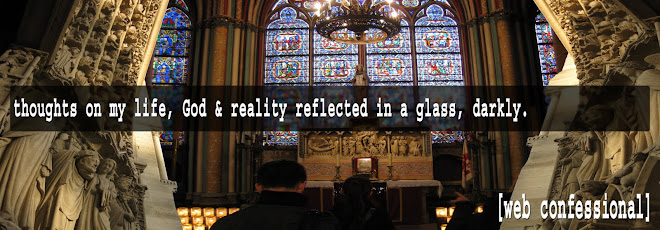i'm reviewing books for the ooze's viral blogger site. check it out.
Rebecca Price Janney's new book entitled, Who Goes There: A Cultural History of Heaven and Hell, sets out to trace the history of American beliefs concerning the afterlife. The problem I found with this book, however, is that I continually had to remind myself that this is what the author was supposed to be doing. Because while much of the book is a history lesson, the author is simultaneously arguing a theological position, which I think she does unsuccessfully.
In the first chapter, Janney argues that Americans have a wishy-washy view of the afterlife believing most people go to heaven, while only the most wicked go to hell. She then says that this is dangerous because only Jesus can provide assurance of heaven. From there, Janney goes on a whirlwind tour through American history chronicling various Christian movements. During this portion of the book-- which is pretty much all of it-- I sensed in Janney's tone the notion that America was once a godly, Christian nation, and it has slowly descended into liberal unorthodoxy (prior to the 1960's people didn't have sex outside of marriage?? p. 179). In the epilogue,Janney argues that in the good (bad?) old days when life expectancy was like 30, people took comfort in the thought of heaven and lived by biblical principles because they feared hell. But now with modern medicine, the media, and technology, Americans do what they please without the fear of death. She then says that this ground is sinking sand, because the Christian hope of heaven and horror of hell are real and appropriate (p. 211).
My question to her is why? How have you shown this? Because what I just read basically says that when life was short and fragile, and when people were considerably more ignorant then they are today, they found comfort in the belief that they were going to heaven. I think Janney unintentionally argues is that Christian beliefs in the afterlife function as a comforting mechanism to those facing death. It's comforting to believe your loved one is in heaven, or that murderers are being punished. That was a comforting thought then, and it is a comforting thought now. Yet, she never gives any compelling reason to believe that faith in Jesus is the only way to heaven, which is what I believe her intention is.
But maybe this book was written only for believers, and the author assumes the reader already believes in Jesus. That's fine, but I still had other problems. In the epilogue, Janney says that Americans historically have believed and acted upon the literal belief of heaven and hell, and that this is what "tenacious" souls continue to accept as true (p.211). But right after she say this she quotes C.S. Lewis, who had beliefs concerning heaven and hell that would make literalists cringe. On page 214, she describes a 700 Club episode that featured a man who had a near death experience where he "went to hell." Not surprisingly, 1,200 (I'm assuming terrified) callers phoned in to get saved. I couldn't help but remember how Janney discusses NDE in a previous chapter. In this chapter, people who had NDE described a place of love and light where they were told sin wasn't a problem and that all religions lead to God. So the NDE guy on the 700 Club had a valid experience, but the NDE's from the previous chapter didn't? Concerning this, Janney says, "people will respond to God's truth when the Holy Spirit convicts them (p. 214)."
I really tried to keep an open mind when reading this. I have to disagree with the previous reviewer about Janney not being "preachy." I did find her preachy, and also confusing. But I will agree that she asks good questions, and I enjoyed the history lesson.
Subscribe to:
Post Comments (Atom)

No comments:
Post a Comment